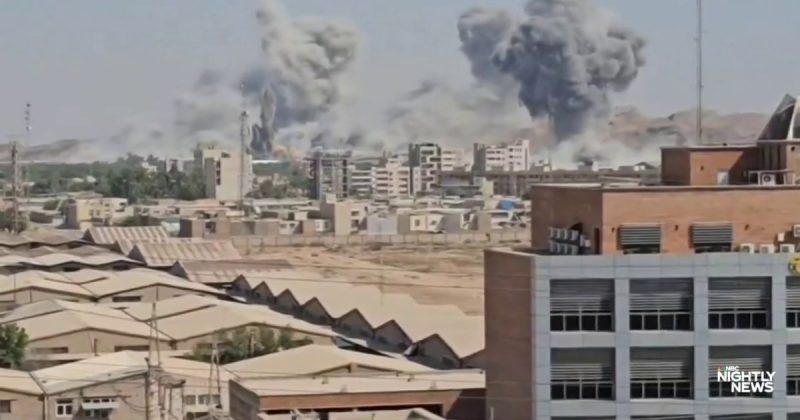
A dramatic escalation in the Israel-Iran conflict unfolded on Saturday, leaving the international community on edge. Israel’s military launched a large-scale air strike deep within Iranian territory, reportedly employing a massive force of 60 fighter jets guided by highly precise intelligence. The scale of the operation is unprecedented in recent years, signifying a significant intensification of the ongoing tensions between the two nations.
The details surrounding the targets and the extent of the damage remain unclear, with both sides offering conflicting accounts. Israel has yet to officially confirm the specifics of its operation, while Iran has been quick to denounce the attack and vow retaliation, though the nature of any potential response is currently unknown. This latest development follows a period of heightened tensions, marked by a series of smaller-scale attacks and escalating rhetoric. The situation has raised serious concerns about the potential for a wider regional conflict, with global powers closely monitoring the situation and urging restraint.
Analysts are divided on the implications of this significant escalation. Some see it as a decisive move by Israel to curb Iran’s nuclear ambitions and regional influence, while others warn that it could trigger a dangerous cycle of violence with unpredictable consequences. The international community is grappling with the need to de-escalate the situation and prevent further bloodshed. The immediate future remains uncertain, but the events of Saturday have undoubtedly pushed the region to the brink, demanding urgent diplomatic efforts to avoid a catastrophic outcome.
The incident has reignited a long-standing debate over the effectiveness of military intervention in resolving complex geopolitical issues. Some argue that decisive action is necessary to deter aggression and protect national interests, while others maintain that military strikes often lead to unintended consequences and exacerbate existing tensions. The ongoing conflict between Israel and Iran highlights the difficulty of finding a peaceful resolution in a region fraught with deep-seated historical grievances and competing geopolitical interests. The international community faces a challenging task in mediating a lasting peace, demanding careful diplomacy and a commitment to finding common ground.










